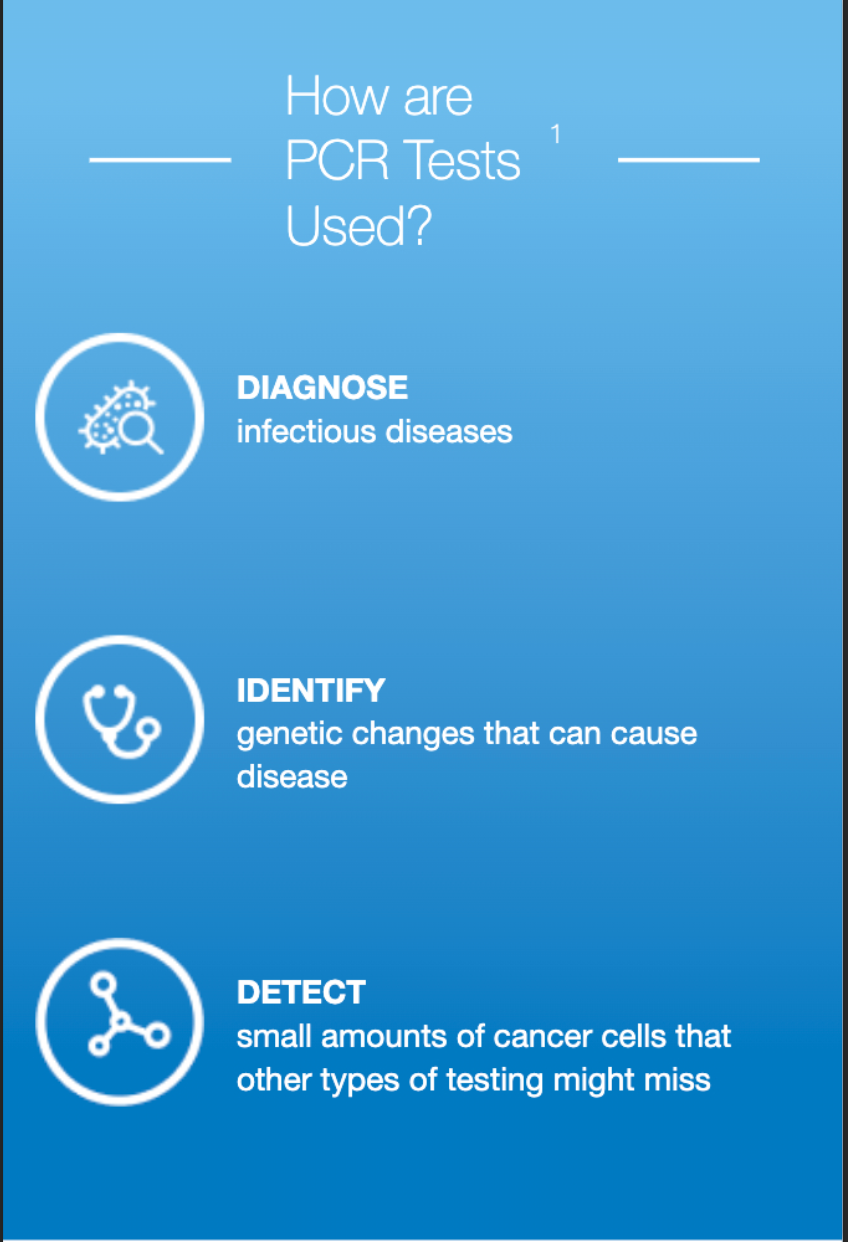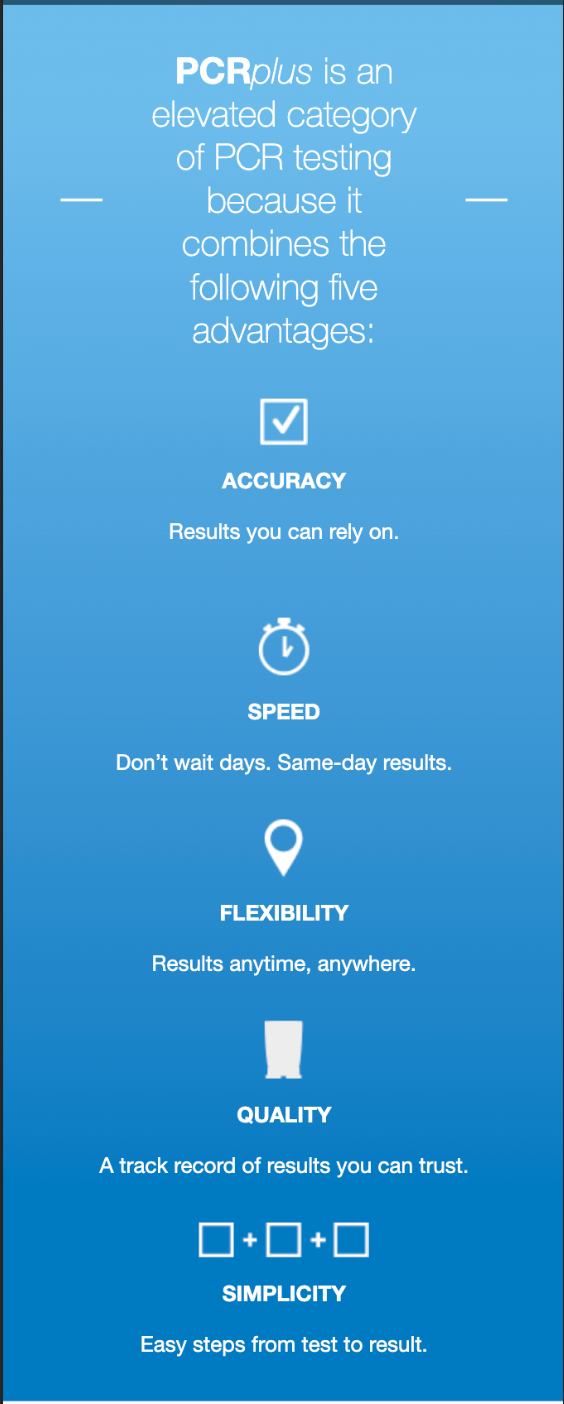A PCR (polymerase chain reaction) test detects genetic material from an organism (i.e. bacteria or a virus) by copying a small portion of the genetic material in a process called amplification.
Amplification allows for easier detection and identification of pathogens (disease-causing organisms) — sometimes even prior to symptoms surfacing — thus helping to prevent the transmission of infection and halt further disease spread. Tests that do not use amplification, such as antigen tests, might not achieve early detection because there are not enough viruses, bacteria, or other pathogens present in a patient’s sample.


What is the Difference Between PCR and Antigen Testing?
Throughout the COVID-19 pandemic, both PCR and rapid antigen testing emerged as integral to slowing the spread of the virus. However, PCR has been recognized as the gold standard for respiratory virus testing.

PCR Tests
PCR tests are more sensitive than antigen tests. PCR tests amplify genetic material from the virus; therefore, they can detect very small amounts of virus in a sample

Antigen Tests
Antigen tests detect viral proteins directly from a sample without amplification; therefore, false negatives may occur if there is a low or moderate amount of virus present


Time to result and intended use environment may vary, refer to individual test package insert for details.
1 Medline Plus: PCR Tests. Accessed 10/1/2022. https://medlineplus.gov/lab-tests/pcr-tests/
2 Cleveland Clinic: COVID-19 and PCR Testing. Accessed 10/1/2022. https://my.clevelandclinic.org/health/ diagnostics/21462-covid19-and-pcr-testing




%20(2)%20(1).png)